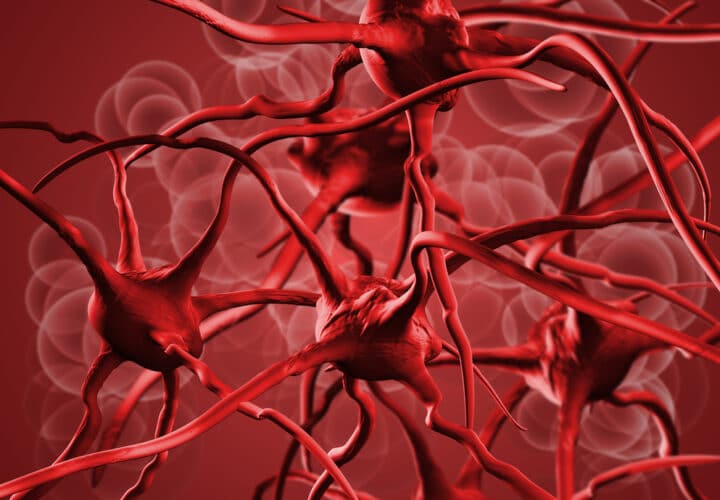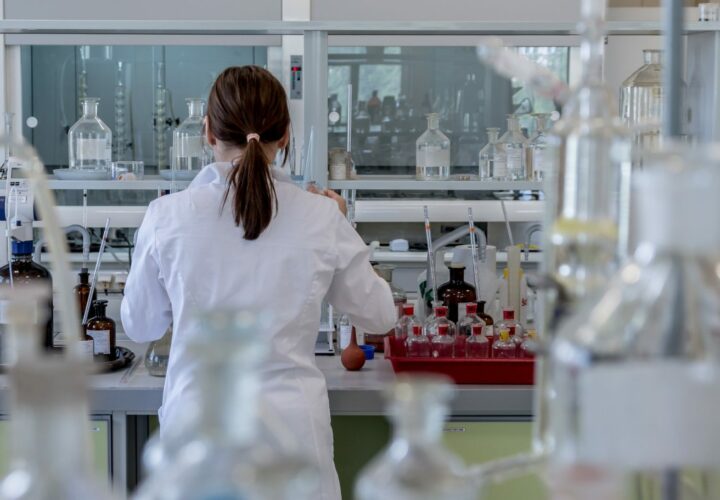In a new mouse study, Salk researchers found a drug, CMS121, that appears to treat neurodegeneration in mice.
Researchers at the Salk Institute for Biological Studies have reported that a drug candidate called CMS121 has successfully halted and possibly reversed memory loss in a mouse model of inherited Alzheimer’s disease.
The new research, published online in Redox Biology, indicated that CMS121, which was developed to slow aging in brain cells, works by changing how brain cells metabolize fatty molecules known as lipids.
“This was a more rigorous test of how well this compound would work in a therapeutic setting than our previous studies on it,” senior author Pamela Maher, a Salk senior staff scientist, said in a news release. “Based on the success of this study, we’re now beginning to pursue clinical trials.”
Over the last few decades, Maher’s team at Salk has been searching for ways to prevent neurodegenerative diseases like Alzheimer’s, and in the course of that exploration, she has studied how a chemical compound called fisetin — which is found in fruits and vegetables and which gives strawberries their bright red color — may improve memory even prevent cognitive decline in mice.
In new research, the team created man-made variants of fisetin and found that one — CMS121 — seemed to improve animals’ memory and and slow the degeneration of brain cells. Maher and colleagues then tested the effect of CMS121 on mice that develop the mouse equivalent of Alzheimer’s disease, giving one group of the mice CMS121 at nine months of age. Because mice age fast, this is the equivalent of middle age in humans, so these mice had already begun to show learning and memory problems.
Three months later, the now year-old mice — some of whom had received CMS121 and some of whom were in the test group — underwent memory and behavioral tests. According to Salk, “mice with Alzheimer’s-like disease that had received the drug performed equally well as healthy control animals, while untreated mice with the disease performed more poorly.”
In comparing the brains of the mice across what were now three groups — a group that was unhealthy but received CMS121, a healthy control group and a control group that was displaying signs of cognitive decline on account of their age — Maher’s team also saw that mice with the Alzheimer’s-like disease had lipid peroxidation, a degradation process that can cause cell damage. CMS121 appeared to lower levels of a lipid-producing molecule called fatty acid synthetase (FASN), which, in turn, lowered levels of this damaging degradation process, preserving cognitive health for longer.
The research follows a late 2019 study published in eLife that, similarly, studied the effects of CMS121 or a separate Salk experimental drug J147 (a derivative of a molecule present in the curry spice curcumin) on rodents at nine months old.
Memory and behavior of the rodents were tested, and genetic and molecular markers in the brain were analyzed, all indicating that mice who received CMS121 and J147 had “much better memory” than the test group.
Researchers also noticed brain changes at a cellular level in the brains of the rodents who were administered the drug candidates.
Salk reports the team is pursuing clinical trials. They see great potential for future research in the other compounds that could be explored by targeting FASN and lipid peroxidation and they are encouraged that FASN could serve as a drug target for the development of a long-awaited cure for Alzheimer’s disease.
Maher added: “There has been a big struggle in the field right now to find targets to go after. So, identifying a new target in an unbiased way like this is really exciting and opens lots of doors.”





Love to get my husband in a clinical trial for this! Please
I would love to have my 82-year old mother-in-law participate in a clinical trial for this. Please advise.
When will clinical trials be available. Would love for my husband to try this.
Please contact Salk to ask about the clinical trials schedule. https://www.salk.edu/engage/contact-us/